The Song of the Cid Read online
Table of Contents
PENGUINCLASSICS
Title Page
Copyright Page
Dedication
Introduction
CANTO ONE
CANTO TWO
CANTO THREE
Notes
PENGUINCLASSICS
THE SONG OF THE CID
BURTON RAFFEL is Distinguished Professor of Arts and Humanities Emeritus and Professor of English Emeritus at the University of Louisiana at Lafayette. His many translations include Cervantes’s Don Quijote, Rabelais’s Gargantua and Pantagruel (winner of the 1991 French-American Foundation Translation Prize), Chrétien de Troyes’s Arthurian Romances, Balzac’s Père Goriot, and Chaucer’s Canterbury Tales. His translation of Beowulf has sold more than a million copies.
MARÍA ROSA MENOCAL is Sterling Professor of the Humanities and Director of the Whitney Humanities Center at Yale. Her books include The Ornament of the World: How Muslims, Jews, and Christians Created a Culture of Tolerance in Medieval Spain and, as coauthor, The Arts of Intimacy: Christians, Jews, and Muslims in the Making of Castilian Culture.
penguin BOOKS
Published by the Penguin Group
Penguin Group (USA) Inc., 375 Hudson Street,
New York, New York 10014, U.S.A.
Penguin Group (Canada), 90 Eglinton Avenue East, Suite 700,
Toronto, Ontario, Canada M4P 2Y3 (a division of Pearson Penguin Canada Inc.)
Penguin Books Ltd, 80 Strand, London WC2R 0RL, England
Penguin Ireland, 25 St Stephen’s Green, Dublin 2,
Ireland (a division of Penguin Books Ltd)
Penguin Group (Australia), 250 Camberwell Road,
Camberwell, Victoria 3124, Australia (a division of Pearson Australia Group Pty Ltd)
Penguin Books India Pvt Ltd, 11 Community Centre,
Panchsheel Park, New Delhi - 110 017, India
Penguin Books (NZ), 67 Apollo Drive, Rosedale, North Shore 0632,
New Zealand (a division of Pearson New Zealand Ltd)
Penguin Books (South Africa) (Pty) Ltd, 24 Sturdee Avenue,
Rosebank, Johannesburg 2196, South Africa
Penguin Books Ltd, Registered Offices: 80 Strand, London WC2R 0RL, England
This translation first published in Penguin Books 2009
Translation copyright © Burton Raffel, 2009
Introduction copyright © María Rosa Menocal, 2009
All rights reserved
eISBN : 978-1-101-02914-5
CIP data available
The scanning, uploading and distribution of this book via the Internet or via any other means without the permission of the publisher is illegal and punishable by law. Please purchase only authorized electronic editions, and do not participate in or encourage electronic piracy of copyrighted materials. Your support of the authors’ rights is appreciated.
http://us.penguingroup.com
for Elizabeth—
splendid critic,
passionate reader
Introduction
It begins with weeping, the open sorrow of a man riding into exile. Soon we hear its distinct echo: the weeping of those who remain behind, and who line the streets to see our hero and his band of loyal followers, all men forced to abandon their homes, and their homeland. There is more weeping: the good citizens along the route openly lament the injustice of it all, and they decry the irascibility of their king, who, they say, has not only banished from the kingdom a better man than himself, but also threatened to rip their eyes out from their heads should they open their doors to these fugitives, this company of sixty men who ride out with their proud banners, following the man they call Cid.
But the king cannot prevent the men and women from opening their hearts to the Cid. Just what has so angered the king, just what the Cid has done to earn himself this calamitous sentence, is never mentioned, and will never be explained, but from this dramatic and poignant beginning forward there is never any question of where our sympathies lie. For the length of three cantos, out of the old Castilian capital of Burgos and into the proverbial deserts of exile—which here means all that lies beyond the Castilian frontier—we follow Rodrigo Díaz, our hero. We are often reminded that he is from Vivar, a small town some five miles to the north of Burgos. This is very much the heart of Old Castile, the Christian kingdom that ultimately conquers the lands of the peninsula that had long been Islamic territories. But Rodrigo Díaz is known mostly by his unambiguously Arabic name: Cid is a direct rendering into Castilian of sayyid—Lord, or Commander. Sometimes he is also called by his strongest epithet, Cid Campeador—the Champion, or the Warrior. By any and all of his names, from the start there is no doubt he is our hero, as we listeners, or readers, are easily welcomed into his first little troop of lucky few, who so possessively, and with such palpable endearment, often call him mio Cid—my Cid.
The Cantar or Poema de Mio Cid has survived some eight hundred years as a written poem, and perhaps decades longer than that as part of an oral poetic tradition. Long regarded as Spain’s national epic, it recounts the clearly fictionalized life and deeds of a charismatic historical figure who played a role in some of the dramatic episodes of the tumultuous eleventh century. The Cid has particularly strong kinship with other national epics (including the American Western) that recount mythologized historical events believed to be vital to the formation of a people or a nation. Central to many of these is an acting-out of the passage from the almost wild universe of unruly frontiers and their attendant injustices to the new world—the new community, the new nation—where a newly crystallized society is instead governed by laws, and where justice reigns.
The Cid’s roughly 3,700 lines are divided into 152 stanzas (called tiradas in Spanish, and laisses in French, and sometimes in English) of irregular length. These are in turn part of three major subdivisions called cantares, powerfully suggesting the work’s inextricability from the tradition of singing (cantar); in English, cantares is easily translated as “canto.” Much else about the poem’s form—its single lines broken into half lines, its oft-repeated formulas, its irregular meter, its use of assonance—also suggests that the poem that comes down to us was composed and performed orally, and transmitted orally for some time, before being committed to writing. But the poem’s occasional learned and ecclesiastical expressions, and its detailed understanding of important legal traditions, suggest instead that there were written sources of various sorts at play in the creation of the poem, and perhaps even that the version we read today is a text originally composed as a written poem.
In either event, one of the poem’s most distinctive features is its relative proximity to the historical events narrated. The roughly contemporary Song of Roland recounts the overtly mythologized story of Charlemagne and his troops crossing the Pyrenees in 778, returning to France from Spain after the siege of Saragossa—events removed from the mid-twelfth-century audience’s lifetime by some four hundred years. Regardless of whether the Cid poet was a wandering and illiterate blind bard, whose masterpiece was most canonically performed in the last decade of the twelfth century before being recorded by a scribe, or instead a cultured lawyer, who had studied in France and even read some of the French epics, such as The Song of Roland, and who finished writing his text in 1207, he was evoking a past that was not far beyond living memory, and that was still well enough known that any number of its salient historical milestones did not need to be retold in the poem in order to be understood.
The historical Cid died in 1099. He had lived out his life of military prowess and fame during a particularly momentous period of Spain’s history: The last quarter of the eleventh century was pivotal in the Iberian peninsula, much of which had been an Islamic polity for nearly four
hundred years. After several centuries of grandeur and cultural achievement, the Caliphate of Cordoba collapsed at the beginning of the eleventh century, torn apart by civil wars provoked by crises of succession, as well as a series of ideological rifts—contemporaries poignantly called this era the fitna, or times of troubles. What remained after the demise of the once powerful central state of Cordoba were dozens of often warring city-states, called the Taifas, from the Arabic muluk at-tawaif, meaning the kingdoms of divided parties, or factions. Although they continued and even expanded many of the great cultural traditions of the past, especially poetry, these fractured kingdoms became increasingly vulnerable to the military incursions and ambitions of the various relatively small Christian kingdoms of the north.
These now-expanding Christian polities—Asturias, Galicia, León, Navarre, Aragon, Barcelona, and, of course, Castile were the major ones—often regarded one another as rivals, and most of them had long had all manner of contacts with the Islamic world that lay just over porous and ever-shifting borders. There were military confrontations, perhaps most famous among them the incendiary attack on the pilgrimage city of Santiago de Compostela in 997 by the infamous usurper al-Mansur, a pivotal figure in the downfall of the caliphate. But the complex relations between Islamic and Christian states also included much that was not hostile, including alliances of one Christian kingdom with the Islamic state against their Christian rivals, as well as intermarriages of royal and other important families across the Muslim-Christian divide. And beginning in the Taifa period of the eleventh century, when the events of The Song of the Cid take place, weakened Taifa cities began paying parias, or tribute money, to Christian kingdoms, in return for protection against all enemies, Christian or Muslim.
At his death in 1065, Ferdinand I of Castile and León—father of Alfonso VI, the king who exiles the Cid, in both history and our poem—was receiving occasional tribute money from the large and important Taifas of Seville and Valencia, and quite regular parias from others: Saragossa, Badajoz, and Toledo. The abundant tribute, paid in both coin and goods, as our poem insistently details for us (the Cid collecting such tribute at every turn, as kings did), made some of the Christian kings and kingdoms ever wealthier, and increasingly powerful. And none more so than the Castilians.
Here was a land poised for far-reaching changes, with dramatic shifts of power around almost every corner. Despite the fact that Ferdinand had spent his life and kingship struggling to unite various rival Christian kingdoms, he ultimately chose to leave the land as a divided inheritance to his three sons: the youngest, García, inherited the least central and least desirable kingdom, Galicia; Alfonso, the middle son, received León, considered the richest prize; and Castile went to the eldest brother, Sancho, whose entourage, the historical record reveals, included a rising star, the prominent warrior and courtier Rodrigo Díaz. Not surprisingly, the brothers were not content to share what they had already seen could be a formidable unified kingdom, and they spent most of the decade after their father’s death in a series of few-holds-barred struggles against one another. When the dust settled it was not Rodrigo Díaz’s sovereign, Sancho, but rather the middle brother, Alfonso, who emerged as the victor, and who was able once again to create a single united Christian kingdom. But this was achieved only at the expense of his brothers and, in fact, not until Sancho was murdered in 1072, while putting down an insurrection in the dramatically sited city of Zamora, the inheritance and the dominion of Ferdinand’s daughter, Urraca. Some believed that Alfonso—who at the time was in exile in Toledo, driven there by Sancho—was directly implicated in the regicide of his brother, perhaps even in collusion with Urraca. These melodramas go unspoken in the poem but are nevertheless understood as the causes behind the exile of the Cid, an exile that is not only the dramatic opening but also the very heart and soul of the poem itself.
Also unspoken in the poem is the cardinal political event of the Cid’s lifetime: In 1085, Alfonso—for over a decade now the powerful Alfonso VI of the unified kingdoms of León and Castile—took Toledo outright, suddenly making this glorious old Taifa city no longer part of the Islamic orbit but the new center of Castilian life. Here was a city far larger and vastly more cosmopolitan than any of the older capitals to the north, a brilliant new jewel in the crown of this ambitious and increasingly powerful king. But it was not just Toledo’s prosperity that made it of incomparable value, and its conquest a palpable turning point. This was no less a place of profound historical and symbolic importance: Toledo had once been the ancient capital of the Visigoths, the Christian rulers overrun by invading Muslim armies centuries before, and the capital of the church in Spain.
Very little of this escaped the Taifa kings. Although for several generations they had bitter relations among themselves, and many had been militarily dependent on Christians, paying them parias, the various Muslim monarchs of the peninsula grasped that the outright loss of Toledo was a defeat of a different order. In a rare moment of something resembling unity among themselves, the Taifa kings, led by their most prominent, al-Mutamid of Seville—who may well be the historical figure loosely summoned up in the poem’s “lord of Seville” in the second canto—decided to ask for military assistance against Alfonso, who, emboldened by the ease with which he had taken Toledo, clearly had further expansion in mind. For this they turned, with considerable trepidation, to the Islamic state in power just across the Strait of Gibraltar, a recently ensconced Berber regime called the Almoravids. Led by the imperious Yusuf Ibn Tashufin—the basis for the Yusuf of the poem, against whom the Cid fights the memorable battle to defend Valencia—the Almoravids crossed over to Spain in 1086, just one year after Alfonso had taken Toledo, and helped the Andalusians deal Alfonso a decisive defeat at Zallaqa, one of the most famous battles of the age. They headed back home, but before long the Almoravids were back on the Iberian peninsula, this time to wage war on their erstwhile allies, the hapless Taifa kings, whose kingdoms they now coveted, and who ended up appealing to Alfonso himself for help in what turned out to be their ultimately unsuccessful struggle against these invaders.
Heady times, these, for a warrior, and especially for one like Rodrigo Díaz, who was at odds with Alfonso after the murder of his own king, Sancho, and more often than not was very much his own man. The historical Cid was exiled not once but several times, for reasons that, on at least one occasion, clearly had to do with what Alfonso felt was egregious lack of loyalty—the virtue the poem is devoted to establishing and repeatedly praising—and for embezzling the parias he had gone to collect for the Castilian king from al-Mutamid of Seville. And in history, the great Castilian warrior fought at the head of virtually any army that he could muster (and frequently these were “mixed” armies, with both Christian and Muslim soldiers) or that would hire him, including that of the Muslim Taifa of Saragossa.
These details are but the tip of the iceberg of differences between what history records and what the poem narrates. The poem is a work of historical fiction, a literary masterpiece that paints its original stories on a vivid historical canvas. Some events in the poem are wholly imaginary, such as the marriages of the Cid’s daughters to two fictitious noblemen and the sequence of events that follow from that dramatic plot turn, but even these are saturated with historical allusions and truths, spun out of a dense fabric of historical concerns, including those of the moment at which the poem crystallizes, a century after the events narrated. Some would say that, as with most other historical fiction, it is really the political and social dramas, the anxieties and preoccupations, of the poet’s time, rather than those of the events narrated, that lie just beneath the surface.
Arguably the most notable historical concerns that have long colored readings of the poem are not from the eleventh century, or even from the twelfth or the thirteenth, but from much later centuries, when Spain no longer had Muslims living on the peninsula, and when implacable religious enmity between the two peoples was believed to have always driven encounters between t
hem. Popular beliefs about the poem deeply affect readings of it, as well as of the history it may reflect. Because this is a text long perceived as central to understanding the national character, there are distinctive claims made as to what it is about—the Reconquest, the ideologically charged struggle of the Christians against the Moors—that are difficult to find in the poem itself, a poem, it is vital to note, that contains a single character—a Frankish churchman, to boot, rather than any Castilian—who speaks and behaves as a wild-eyed Moorslayer, as the later mythology tells us all Christians did.
Writing about The Song of the Cid in El País Semanal in 2007, the year of the poem’s eight-hundredth anniversary, Javier Marías, one of Spain’s most prominent contemporary writers, remarked that it is one of those books that few know but that most believe they have read. Many surprises await those who imagine, before actually reading the Cid, that the poem pivots on the epic struggles between Christians and Muslims in medieval Spain, much as the famous Old French Song of Roland pivots on its epic struggle between “Christians and Pagans.” Although the Cid is indeed a warrior of epic skills, and although his exploits on the battlefields from Castile to the outskirts of Saragossa and ultimately to Valencia can be seen as the stepping-stones of the plot, the heart of The Song of the Cid is not at all in its warfare. And while many, perhaps most, either in Spain or abroad, are likely to say that the Cid is a hero because of his role in reclaiming Christian lands, an attentive reading of the poem reveals that this is scarcely an issue at all, and that while our hero may be a pious Christian he is not driven by anything like religious zeal in his battles and conquests. Both the Cid and his poem have other preoccupations, and other problems to resolve.

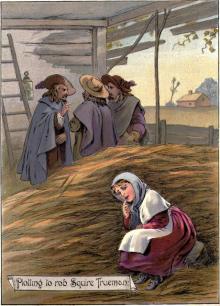 Goody Two-Shoes
Goody Two-Shoes The Pearl Box
The Pearl Box And when you gone...
And when you gone... Stranger At The Other Corner
Stranger At The Other Corner My Young Days
My Young Days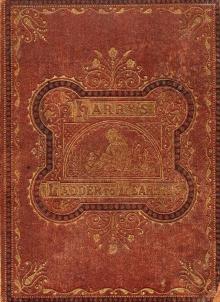 Harry's Ladder to Learning
Harry's Ladder to Learning Vice in its Proper Shape
Vice in its Proper Shape_preview.jpg) Promise (the curse)
Promise (the curse) The First Sexton Blake
The First Sexton Blake Golden Moments
Golden Moments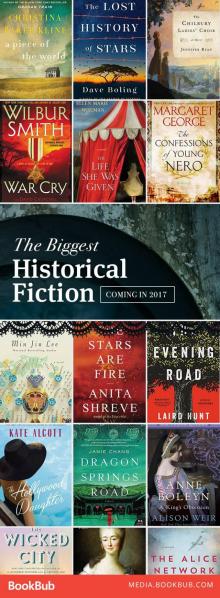 Hildebrand; or, The Days of Queen Elizabeth, An Historic Romance, Vol. 2 of 3
Hildebrand; or, The Days of Queen Elizabeth, An Historic Romance, Vol. 2 of 3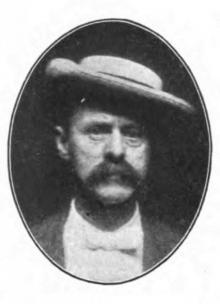 The Ice Queen
The Ice Queen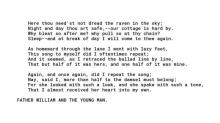 Phebe, the Blackberry Girl
Phebe, the Blackberry Girl Stoned Immaculate
Stoned Immaculate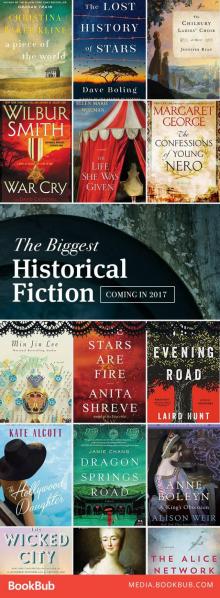 Hildebrand; or, The Days of Queen Elizabeth, An Historic Romance, Vol. 3 of 3
Hildebrand; or, The Days of Queen Elizabeth, An Historic Romance, Vol. 3 of 3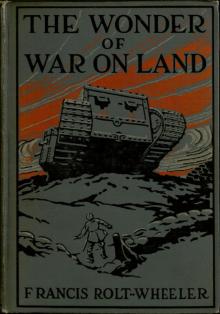 The Wonder of War on Land
The Wonder of War on Land Breaking Bailey
Breaking Bailey The Little Girl Who Was Taught by Experience
The Little Girl Who Was Taught by Experience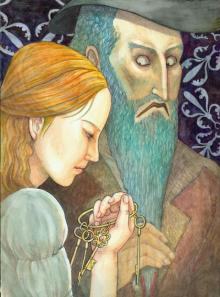 The Popular Story of Blue Beard
The Popular Story of Blue Beard The Life Savers: A story of the United States life-saving service
The Life Savers: A story of the United States life-saving service Eunuchs and Nymphomaniacs
Eunuchs and Nymphomaniacs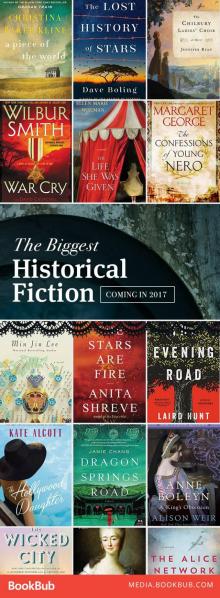 Hildebrand; or, The Days of Queen Elizabeth, An Historic Romance, Vol. 1 of 3
Hildebrand; or, The Days of Queen Elizabeth, An Historic Romance, Vol. 1 of 3 Kitty's Picnic, and Other Stories
Kitty's Picnic, and Other Stories Two Yellow-Birds
Two Yellow-Birds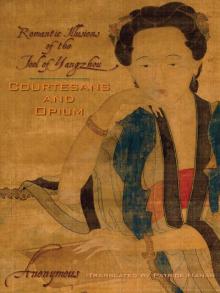 Courtesans and Opium
Courtesans and Opium The Emigrant's Lost Son; or, Life Alone in the Forest
The Emigrant's Lost Son; or, Life Alone in the Forest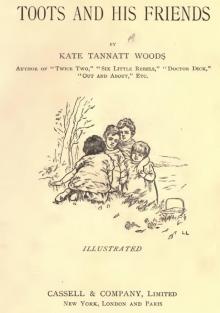 Toots and His Friends
Toots and His Friends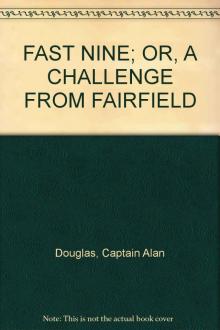 Fast Nine; or, A Challenge from Fairfield
Fast Nine; or, A Challenge from Fairfield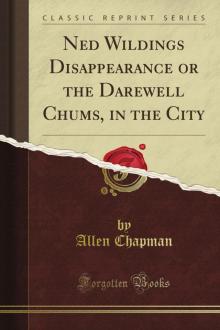 Ned Wilding's Disappearance; or, The Darewell Chums in the City
Ned Wilding's Disappearance; or, The Darewell Chums in the City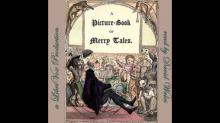 A Picture-book of Merry Tales
A Picture-book of Merry Tales The Trail of The Badger: A Story of the Colorado Border Thirty Years Ago
The Trail of The Badger: A Story of the Colorado Border Thirty Years Ago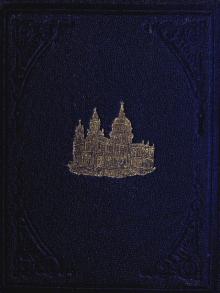 Peter Parley's Visit to London, During the Coronation of Queen Victoria
Peter Parley's Visit to London, During the Coronation of Queen Victoria The Rainbow, After the Thunder-Storm
The Rainbow, After the Thunder-Storm Arthur Hamilton, and His Dog
Arthur Hamilton, and His Dog The Story of the White-Rock Cove
The Story of the White-Rock Cove Grushenka. Three Times a Woman
Grushenka. Three Times a Woman Adventures of a Squirrel, Supposed to be Related by Himself
Adventures of a Squirrel, Supposed to be Related by Himself Falling in Love...Again
Falling in Love...Again The Colossal Camera Calamity
The Colossal Camera Calamity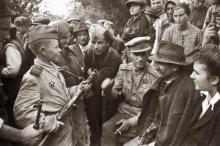 Child of the Regiment
Child of the Regiment Elimination Night
Elimination Night The Kingfisher Secret
The Kingfisher Secret Left to Ourselves; or, John Headley's Promise.
Left to Ourselves; or, John Headley's Promise. The Island of Gold: A Sailor's Yarn
The Island of Gold: A Sailor's Yarn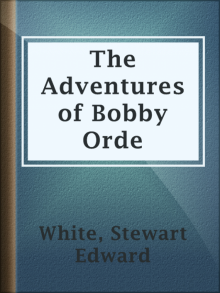 Adventures of Bobby Orde
Adventures of Bobby Orde Twain, Mark: Selected Obituaries
Twain, Mark: Selected Obituaries When Love Goes Bad
When Love Goes Bad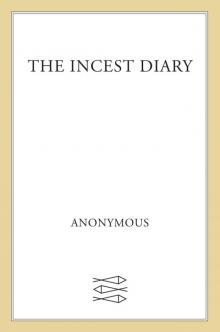 The Incest Diary
The Incest Diary Calling Maggie May
Calling Maggie May The Infidelity Diaries
The Infidelity Diaries Diary of an Oxygen Thief (The Oxygen Thief Diaries)
Diary of an Oxygen Thief (The Oxygen Thief Diaries) ARABELLA
ARABELLA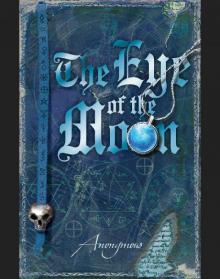 The Eye of the Moon
The Eye of the Moon Dara
Dara THE ALTAR OF VENUS: The Making of a Victorian Rake
THE ALTAR OF VENUS: The Making of a Victorian Rake The Book of Death
The Book of Death The Book of David
The Book of David The Devil's Graveyard
The Devil's Graveyard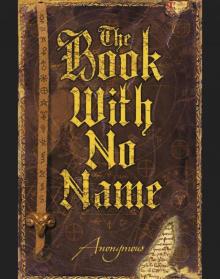 The Book With No Name
The Book With No Name I Am A Lesbian
I Am A Lesbian Njal's Saga
Njal's Saga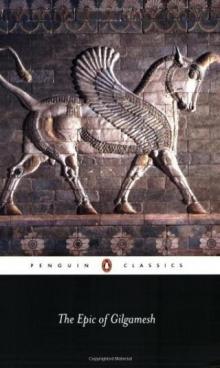 The Epic of Gilgamesh
The Epic of Gilgamesh Darling
Darling Tal, a conversation with an alien
Tal, a conversation with an alien Go Ask Alice
Go Ask Alice Aphrodizzia
Aphrodizzia The Campus Trilogy
The Campus Trilogy Augustus and Lady Maude
Augustus and Lady Maude Lucy in the Sky
Lucy in the Sky Sight Unseen
Sight Unseen Pleasures and Follies
Pleasures and Follies The Red Mohawk
The Red Mohawk A Fucked Up Life in Books
A Fucked Up Life in Books Chameleon On a Kaleidoscope (The Oxygen Thief Diaries)
Chameleon On a Kaleidoscope (The Oxygen Thief Diaries) Astrid Cane
Astrid Cane BEATRICE
BEATRICE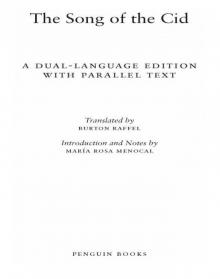 The Song of the Cid
The Song of the Cid